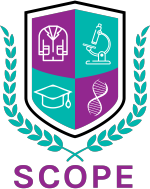
In an era where the healthcare sector is booming, numerous individuals aspire to embark on a lucrative career path within this field without having to clear the National Eligibility cum Entrance Test (NEET). This comprehensive guide explores high-salary career options in the medical field that do not require NEET, focusing on the specialized programs offered by Skilling College of Paramedical Education. From Radiology Technicians to Medical Laboratory Technicians, this article delves into the essence of each course, shedding light on the education requirements, job roles, and potential earning capacities.
High Salary Career Options in Medical Without NEET
Certificate Course in Radiology Technician
This course prepares individuals to operate advanced imaging equipment, including X-rays, CT scans, and MRIs. It’s a gateway to becoming a radiology technician, a professional responsible for capturing clear and accurate images that assist in diagnosing and treating patients.
Certificate Course in Operation Theatre Technician
Operation Theatre Technicians are integral to the surgical team, managing the operation theatre, preparing patients and instruments for surgery, and ensuring a sterile environment. This certificate course equips students with the necessary skills and knowledge to excel in this critical role, leading to employment in hospitals and surgical centers with competitive salaries.
Advanced Diploma in Medical Lab Technology
An Advanced Diploma in Medical Lab Technology trains students to perform complex lab tests that help diagnose, treat, and prevent diseases. Medical Lab Technologists play a crucial role in the healthcare system, and this qualification opens doors to high-paying positions in hospitals, research labs, and diagnostics centers.
Bachelor of Vocation in Medical Lab Technology
A step beyond the advanced diploma, this bachelor’s degree provides a comprehensive education in medical lab technology, including handling and analyzing biological specimens. Graduates are well-prepared for higher-level positions in medical laboratories and research institutions, with salaries reflecting their advanced skills and knowledge.
Bachelor of Vocational in Radiology and Medical Imaging Technology
This undergraduate program explores radiology and medical imaging more deeply, preparing students to become experts in diagnostic imaging. With a blend of theoretical knowledge and practical skills, graduates can expect lucrative career opportunities in hospitals, diagnostic centers, and private clinics.
Certificate Course in Phlebotomy Technician
Phlebotomy Technicians are trained to draw blood from patients for tests, transfusions, research, or donations. This certificate course provides the skills needed for this precise task, promising employment in various healthcare settings and the potential for high earnings, especially with specialized certifications.
Certificate Course in Medical Laboratory Technician
This course focuses on the fundamentals of medical laboratory work, including the preparation and testing of specimens. Medical Laboratory Technicians are essential in the diagnostic process, and this certification opens the door to numerous job opportunities in the medical field with attractive salary packages.
Certificate Course in General Nursing and Midwifery Assistant
This course is designed to equip students with the fundamental skills and knowledge needed for nursing and midwifery, preparing them for various roles in healthcare settings, emphasizing compassionate patient care.
Diploma in Cardiology Technology
This diploma program trains students to use diagnostic equipment and tests to assess heart health, such as ECG, echocardiogram, and stress tests. Graduates can pursue careers in hospitals and clinics, supporting cardiologists and other healthcare professionals.
Bachelor of Science in Medical Lab Technology
Offering an in-depth understanding of medical laboratory technologies, this degree program prepares students for roles that involve analyzing bodily fluids and tissue samples to diagnose and monitor diseases. It provides a solid foundation for a career in medical research, diagnostics, and clinical laboratories.
GDA & Phlebo Courses
The General Duty Assistant (GDA) course prepares individuals to support nursing staff and healthcare professionals in patient care, ensuring comfort and hygiene. The Phlebotomy (Phlebo) course, on the other hand, focuses on training individuals in blood collection techniques for testing, transfusions, and research purposes. These courses offer paths to meaningful entry-level positions in healthcare, with opportunities for professional growth and higher earnings through experience and additional certifications.
Conclusion
The healthcare industry offers a plethora of high-paying career options that do not require NEET, particularly in the paramedical field. Scope College’s courses are tailored to meet the industry’s demand for skilled professionals in various specialties. By pursuing these programs, individuals can embark on rewarding career paths with promising financial prospects.
